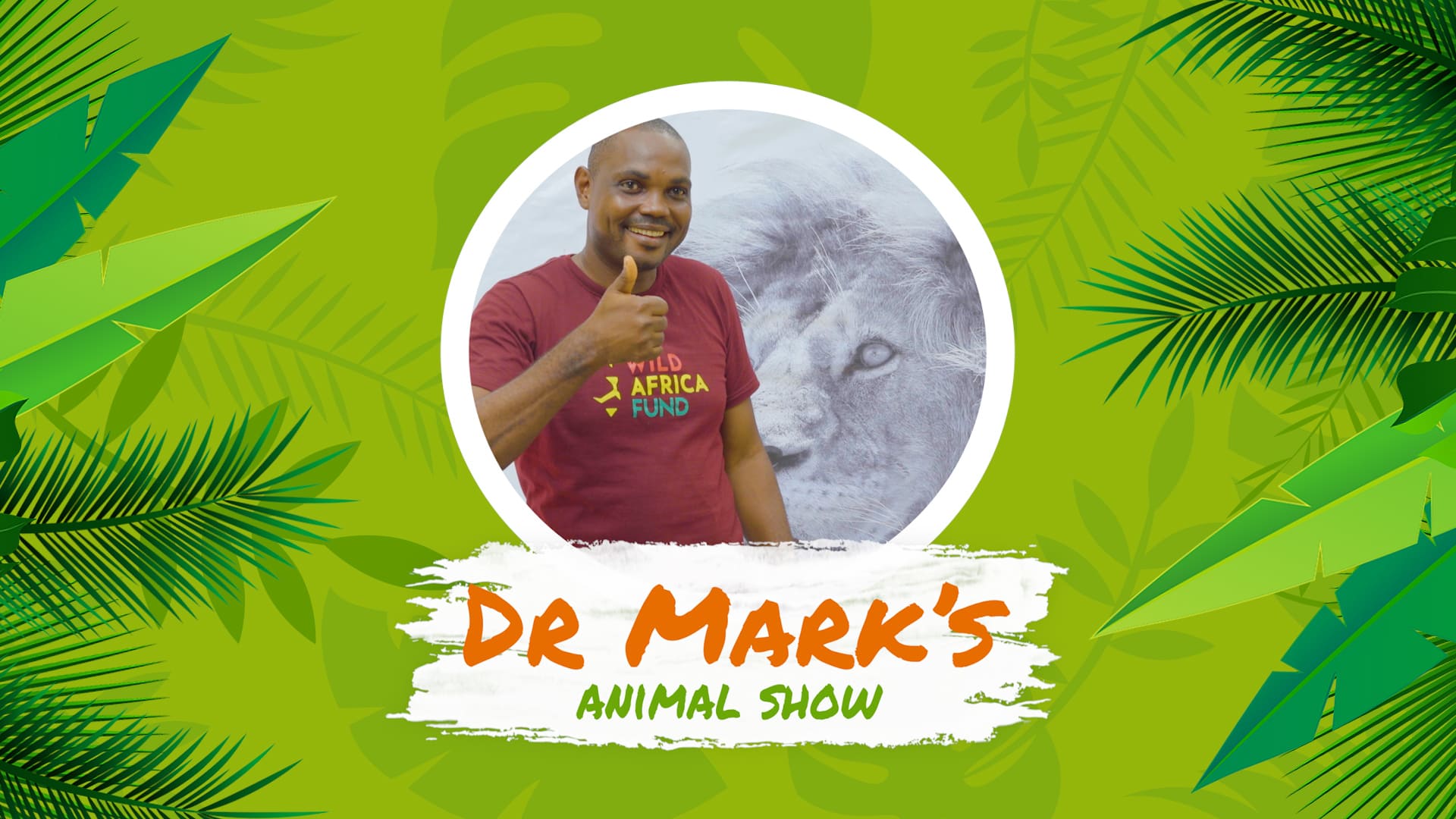
By Dr Mark Ofua, Wildlife Veterinarian and Presenter, Dr Mark’s Animal Show
Africa’s natural heritage is truly unique – and is one of our most important resources. Wild spaces support people by producing our oxygen, purifying our water, providing our food, and protecting us against events like floods. Wild animals also contribute to our lives by pollinating crops, dispersing seeds and recycling nutrients. But it doesn’t end there. Nature reserves bring in billions through wildlife tourism, boosting our economies and creating jobs. In fact, tourism drives 8.5% of Africa’s economy – and 80% of those tourists come to see wildlife.
As valuable as wildlife is, it’s in grave danger. Since 1970 Africa has lost two thirds of its wildlife and many of the continent’s most iconic species are now endangered. Even in a country like South Africa, which has a long history of conservation, 17% of mammal species are threatened with extinction, while another 10% are considered near threatened. The causes of these declines are habitat loss, poaching, environmental degradation and the illegal wildlife trade as well as climate change.
But for millions of children across the continent, these things are difficult to understand. The majority of those who live in Africa’s fast-growing cities will likely never see an elephant, lion, or rhino in the wild. They don’t have the Africa of 50 years ago as a baseline to compare to, yet these losses will impact their lives in profound and long lasting ways.
Unless something changes – and it can change! By teaching children about their wildlife and by exposing them to relatable role models, they can become advocates for conservation and help protect Africa’s natural resources.
The importance of example
Think about it: how many interests have you picked up because you saw an adult doing it when you were a kid and thought it looked fun or interesting? My own interest in animals, which eventually led to my becoming a wildlife veterinarian, was inspired by the works of Gerald Durrell. The writer’s stories resonated with my own childhood curiosity about animals. His accounts of travel through Africa, meanwhile, helped me realise that many of the stories we were told about wild animals like snakes, owls, and bats were myths.
I’ve also come to realise how powerful it is for children to see people who look like them doing things they might never have thought possible. It’s one of the reasons why, together with the Wild Africa Fund, I’ve launched Dr Mark’s Animal Show. The show aims to bring these animals to life and inspire the next generation of African wildlife guardians. It does so by highlighting both rare and common animal species, providing fun facts about them as well as diving into the challenges they face, and culminates in an engaging quiz.
We have to remember that these young people will in a very short while be Africa’s policy makers, business people and leaders. Today, the challenge we face is that many African leaders don’t fully grasp the importance of conservation and how it connects to our health and economy. If this next generation grows up passionate about the environment, strong conservation policies will follow.
Wildlife shows for African audiences
A lack of opportunities, along with the costs of production, have meant that wildlife shows and films about Africa often tend to be made by Western media for Western audiences. Our show is produced by African filmmakers for African audiences. Instead of learning about walruses and polar bears, kids can learn about African animals that live in their environments, and how their lives connect with those species. Rather than the conventional nature documentary showing unspoiled wildernesses, we get to grips with the realities wildlife face, introducing the children to animals I’ve helped rescue from the illegal wildlife trade or bushmeat markets, and talking to them about how they can help make a positive difference.
The benefits programmes like this can provide, extend beyond inspiring the next generation of wildlife guardians. Kids also wield a very strong influence on their parents. I find they very easily sway their elders to obey things such as traffic signs more than the threat of fines or anything else. Young people can bring this influence to bear in stopping their parents from destroying their surrounding environment or aiding activities like the illegal pet trade or bushmeat trade. Beyond that, shows like this inspire people to seek out time in the natural world, with its significant mental and physical benefits as an example. Coming from the frantic bustle of Lagos with over 20 million people, I can tell you nature provides a welcome break!
Just the start
Ultimately, I hope that we start seeing more and more African wildlife filmmakers enter the edutainment space, targeting African audiences. The ripple effects, particularly if they’re picked up for distribution by major broadcasters and streaming platforms, could be enormous. The wider and more varied the reach, the better the chance Africa’s wildlife and people have.
Dr Mark’s Animal Show will be available in 44 markets on Showmax from 15 March 2024.
